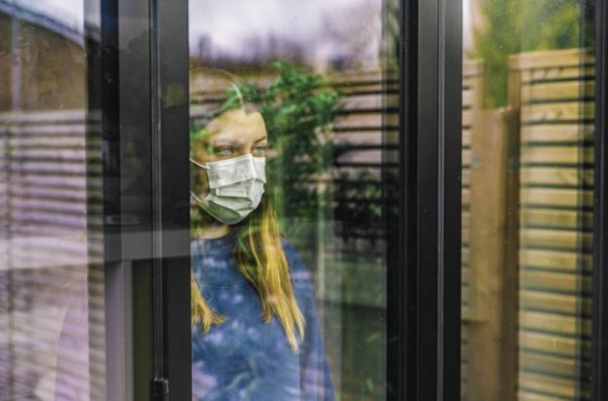Wright County Public Health says COVID-19 contact tracing and quarantine will continue as we head into school year

By Sandy McGrath RN
Wright County Public Health Administrator
COVID-19 investigation and contact tracing will continue in Wright County as this is still a reportable disease. Wright County Health Department contacts positive cases and completes investigation forms, verifies isolation dates and traces exposed persons. Household members with a positive case in that household are asked to quarantine 10 days from last exposure to the positive. This Delta variant is more transmissible and I am seeing more children with symptoms. Vaccinated persons do not need to quarantine unless they exhibit symptoms and at that time need to test for COVID-19 and follow positive protocol if results are positive. Wright County Public Health’s mission is to protect, prevent and promote. I think we all agree we do not knowingly want a COVID-19 positive person to attend school until they no longer spread infection. We continue to have a vulnerable population of children 12 and under who are not yet able to be vaccinated.
In answer to the FAQ on the Fall K-12 School update document, regarding the Iowa Department of Public Health’s (IDPH) response to adjusting COVID-19 surveillance to follow the influenza model, COVID-19 is still a reportable disease. THIS refers to how IDPH tracks data, not the response to a positive case, clusters and outbreaks. Influenza is not a reportable disease at this time. IDPH at this time is not doing investigation on single positive cases. However, this has always been the local public health responsibility and a local level decision. IDPH just provided the capacity to assist smaller health departments.
EPIDEMIOLOGY MANUAL/IDPH GUIDE TO SURVEILLANCE, INVESTIGATION AND REPORTING
(This is the guidance from the state that local public health follows and requires for the county, including positive cases at schools)
A. Persons who test positive for COVID-19 are recommended to stay home until they are no longer infectious
Person’s sick with COVID-19 are considered infectious 48 hours prior to symptom onset until:
· At least 10 days since symptoms first appeared AND,
· At least 24 hours with no fever without fever-reducing medication AND,
· Other symptoms of COVID-19 are improving.
Persons with severe, advanced immunosuppression should stay home longer than 10 days, until:
· Two negative test results in a row, at least 24 hours apart OR
· 20 days post symptom onset or date of test.
Persons who tested positive for COVID-19 but did not develop symptoms are considered infectious 48 hours prior to date of specimen collection until:
· 10 days have passed following the date the positive specimen was collected.
The above guidance applies to both unvaccinated and vaccinated individuals.
Reminder: All persons who are experiencing an illness should stay home while they are ill, even if they test negative for COVID-19 or receive an alternative diagnosis.
B. Individuals should be evaluated for exposure in households, congregate settings, and outbreaks/clusters
When follow-up is performed, close contact is defined as being less than 6 feet away from an infectious person for more than 15 consecutive minutes AND the case, the contact, or both were not wearing a face covering during the interaction. Acceptable face coverings are described in CDC guidance at https://www.cdc.gov/coronavirus/2019-ncov/prevent-getting-sick/about-face-coverings.html.
C. Unvaccinated, asymptomatic contacts are advised to stay home to monitor for symptoms
To help further reduce risk of spreading the virus, unvaccinated persons who are exposed but remain healthy (no symptoms) can be advised to stay home to monitor for symptoms. This approach can help to reduce the risk of spread to other people, especially vulnerable populations.
Individuals exposed to COVID-19 may develop symptoms from 2-14 days after exposure.
However, exposed individuals can reduce the length of time they are recommended to stay home from 14 days via the following options:
· Stay home through Day 10 if no symptoms have developed.
· Stay home through Day 7 if the exposed person tests negative and no symptoms have developed. The specimen must be collected within 48 hours before leaving the home (i.e. not earlier than Day 5).
In all cases, the individual should continue to monitor for symptoms and are recommended to wear a mask when around others through Day 14 in order to minimize risk of spread.
D. Vaccinated contacts do not need to stay home, but should monitor for symptoms and get tested
Fully vaccinated people with no COVID-like symptoms do not need to stay home following an exposure to someone with suspected or confirmed COVID-19. However, fully vaccinated people should still self-monitor for symptoms of COVID-19 for 14 days following an exposure. In addition, vaccinated contacts should get tested 3-5 days exposure, even if they don’t have symptoms, and wear a mask indoors in public for 14 days following exposure or until their test result is negative.
Fully vaccinated people who experience COVID-19 symptoms should stay home, be clinically evaluated, and be tested for COVID-19 infection if clinically indicated. Fully vaccinated people should inform their health care provider of their vaccination status at the time of presentation to care.
Individuals are considered fully vaccinated 14 days after completion of their vaccination series (i.e. 2 weeks after the second dose in a 2-dose series or 2 weeks after a single-dose vaccine).
I have also provided a link to this helpful document, please share;
Common Child Illness and Exclusion Criteria for Education and Child Care Setting. https://idph.iowa.gov/Portals/1/userfiles/128/childhood_illness.pdf
Category:
Wright County Monitor
P.O. Box 153
Clarion, IA 50525
Phone: 515-532-2871
Email: news@wrightcountymonitor.com
Mid-America Publishing
This newspaper is part of the Mid-America Publishing Family. Please visit www.midampublishing.com for more information.
